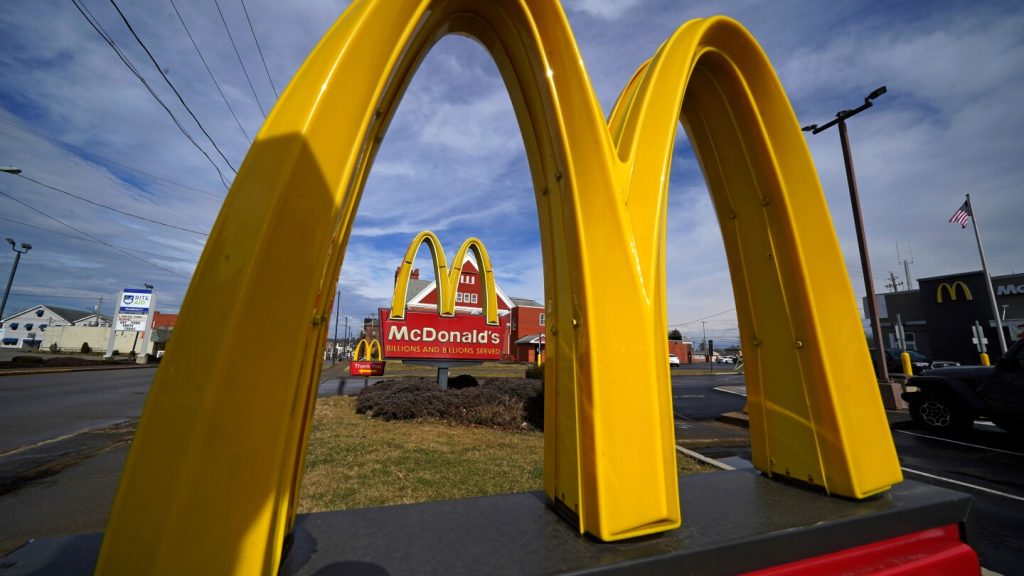Listen to the article
McDonald’s Leans into Value Strategy as Consumer Spending Remains Tight
McDonald’s reported a boost in third-quarter sales, driven largely by the successful return of Snack Wraps and an increased focus on value-oriented offerings. The fast-food giant saw global same-store sales rise by 3.6% for the July-September period, slightly exceeding Wall Street expectations of 3.5%.
Chairman and CEO Chris Kempczinski delivered a sobering economic outlook, however, warning that consumers in the U.S. and other key international markets continue to face financial pressures—a situation he believes will persist until 2026. Concerns about SNAP food aid benefits during the government shutdown have further complicated consumer sentiment.
“I think sometimes there’s this idea that value only matters to low-income customers. But value matters to everybody,” Kempczinski told investors during a conference call. “Feeling like you’re getting good value for your dollar is important.”
The company has observed a continued decline in fast-food restaurant visits from lower-income consumers, a trend that has now persisted for nearly two years. While higher-income customers are still dining out, they too are increasingly seeking deals and discounts.
In response, McDonald’s has aggressively expanded its discount strategy. The company launched Extra Value Meals in the U.S. in early September, adding to existing promotions like the McValue menu introduced in January. In Australia, the chain committed to freezing prices on value items for 12 months starting in July, which successfully drove increased foot traffic.
The reintroduction of Snack Wraps after a nine-year hiatus proved particularly successful. McDonald’s reported that the $2.99 item became the most popular new chicken product in recent U.S. history, with approximately 20% of customers purchasing one during the first month of availability.
In the U.S. market specifically, same-store sales rose by 2.4% during the third quarter.
These value-focused strategies come at a significant cost to McDonald’s bottom line. Chief Financial Officer Ian Borden revealed that the company agreed to cover half the cost of price reductions for Extra Value Meals for its U.S. franchisees—amounting to $15 million in September alone and projected to reach $75 million in the fourth quarter. Additionally, McDonald’s invested $40 million to support marketing for these meal deals.
The financial impact was evident in the company’s earnings report. While net income rose 1% to $2.28 billion, adjusted earnings per share came in at $3.22, falling short of analysts’ forecasts of $3.33. Revenue increased 3% to $7.08 billion, meeting Wall Street expectations. Despite the mixed results, McDonald’s shares rose 3% in early afternoon trading following the announcement.
Kempczinski expressed pessimism about a recovery in demand from households earning less than $45,000 annually, citing persistent inflation in essential expenses like food, childcare, and rent.
“There’s some significant inflation there that the low-income consumers are having to absorb, and I think that’s affecting their outlook and their sentiment,” he explained.
The value perception challenge appears to be industry-wide. Higher-priced fast-casual chains like Cava and Chipotle reported weaker-than-expected results for the same period. Chipotle CEO Scott Boatwright specifically highlighted the pressures facing young adults, including unemployment, resumed student loan repayments, and slower real wage growth.
“Despite our extraordinary value proposition, we are seeing examples where this is not reflected in consumer perception,” Boatwright told investors last week, announcing plans for a new campaign emphasizing fresh ingredients and portions at reasonable prices.
By contrast, value-oriented Taco Bell showed strong performance. Parent company Yum Brands reported a 7% increase in Taco Bell’s same-store sales, driven by affordable offerings like its $3 Grilled Steak Burrito.
“We’re not seeing consumer pullback in the Taco Bell business. We do think the consumer in the U.S. is cautious but incredibly resilient,” said Yum Brands CEO Chris Turner, noting increased visits from younger consumers and families during the quarter.
Fact Checker
Verify the accuracy of this article using The Disinformation Commission analysis and real-time sources.




9 Comments
The economy’s impact on consumer sentiment is a concern, but McDonald’s seems well-positioned with its value-focused strategy. Maintaining that balance between affordability and profitability will be the real challenge.
Interesting to see McDonald’s focus on value offerings during this economic climate. It’s smart to cater to all income levels when consumer spending is tight. I wonder if they’ll continue this strategy as conditions potentially improve.
Value is so important, especially for lower-income customers who are cutting back on dining out. Kudos to McDonald’s for recognizing this and adapting their menu. It will be crucial for them to maintain an affordable, compelling value proposition.
It’s smart of McDonald’s to double down on value as consumer spending tightens. Balancing affordability with profitability will be a delicate dance, but their brand recognition and scale should give them an advantage.
While the economic outlook remains uncertain, McDonald’s focus on value is a prudent strategy. Adapting their offerings to customer needs during challenging times could help them weather the storm.
I’m curious to see how McDonald’s navigates this pressure on consumer spending. Leaning into value is a smart move, but they’ll need to be vigilant in monitoring changing customer behaviors and preferences.
Absolutely. Flexible, data-driven strategies will be key for McDonald’s to stay ahead of evolving economic conditions and customer needs.
The decline in visits from lower-income consumers is concerning, but McDonald’s emphasis on value could help offset that. It will be interesting to see if they can attract and retain that demographic through affordable menu options.
That’s a great point. Maintaining relevance with the lower-income segment will be critical, as they make up a significant portion of the fast-food market.